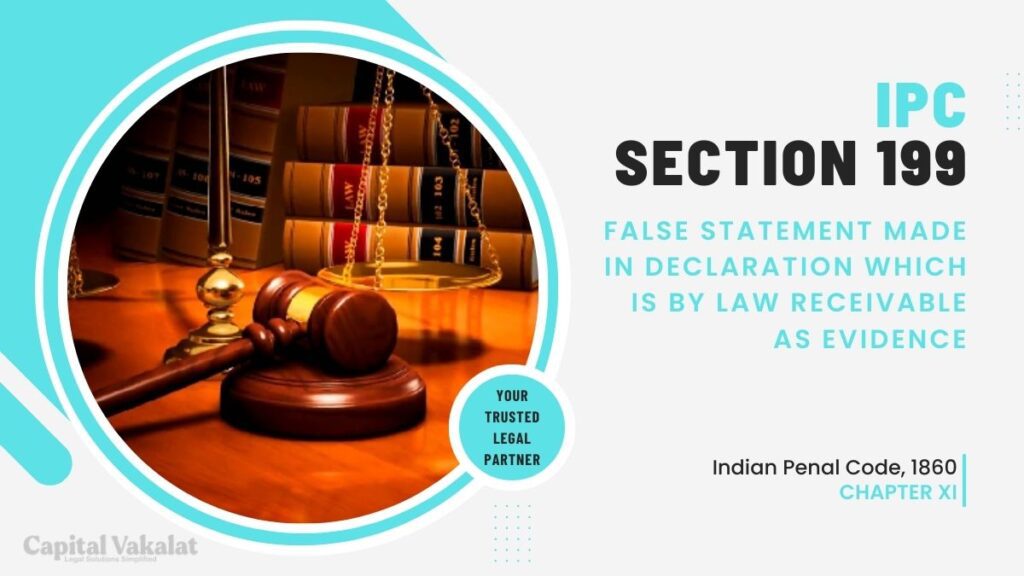Section 199 of the Indian Penal Code (IPC) deals with false statements made in declarations that are by law receivable as evidence. This provision is crucial in maintaining the integrity of the legal system and ensuring that declarations made under oath or by law are truthful.

In this article, we will explore the various aspects of Section 199 IPC, including its purpose, elements, legal relevance, consequences, defenses, and its real-world impact.
Understanding Section 199 IPC
Section 199 IPC plays a vital role in upholding the truthfulness of declarations in legal matters. Its primary purpose is to deter individuals from making false statements when providing information that can be accepted as evidence in legal proceedings. This section serves to safeguard the sanctity of sworn statements and documents used in court.
Elements of False Statement in a Declaration
To be accused of violating Section 199 IPC, several elements must be present. A false statement must have been made in a declaration that is by law receivable as evidence. The intent to deceive or provide false information is a crucial component of this offense.
Legal Relevance of Declarations
Declarations are fundamental in legal proceedings. They include sworn affidavits, depositions, and documents presented in court. These declarations can significantly impact the outcome of a case, making it imperative that they are accurate and truthful.
The Consequences of Making False Declarations
Individuals who make false statements in declarations may face severe consequences, both civil and criminal. Criminal charges can be brought against those who knowingly provide false information in declarations that are legally admissible as evidence.
Defenses Against False Declaration Accusations
Defending against false declaration accusations can be complex. It is essential to prove that the statement was not intentionally false or that there was a valid reason for any inaccuracies. Legal professionals play a crucial role in ensuring that the accused receives a fair defense.
The Importance of Truthful Declarations
Making truthful declarations is not only a legal requirement but also vital for upholding justice and the rule of law. False declarations can lead to miscarriages of justice and damage the credibility of the legal system.
Real-Life Consequences of False Declarations
To illustrate the real-world impact of Section 199 IPC, let’s examine some case studies where individuals faced legal consequences for making false statements in declarations that were receivable as evidence.
Preventing False Declarations
Preventing false declarations is a collective responsibility. Individuals making declarations must be honest and accurate, while legal professionals must ensure that the process is transparent and fair.
Role of Legal Professionals
Legal professionals, such as lawyers and judges, play a pivotal role in upholding the integrity of Section 199 IPC. They must ensure that declarations are made truthfully and that false statements are dealt with according to the law.
Conclusion
Section 199 IPC serves as a crucial pillar in upholding the truthfulness of declarations in legal matters. It ensures that those who make false statements in declarations that are legally admissible face the consequences of their actions, ultimately contributing to a just and honest legal system.
Frequently Asked Questions
Can unintentional false statements lead to charges?
Yes, if a false statement is made in a declaration that is legally receivable as evidence, it can lead to charges under Section 199 IPC.
How can one defend against a false declaration accusation?
Defending against such accusations may involve proving that the false statement was not intentional or that there was a valid reason for any inaccuracies.
Why is making truthful declarations important?
Truthful declarations are essential for upholding justice and maintaining the credibility of the legal system.
What are the penalties for violating Section 199 IPC?
Violating Section 199 IPC can lead to criminal charges and legal consequences, which may vary depending on the specifics of the case.